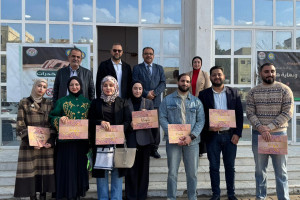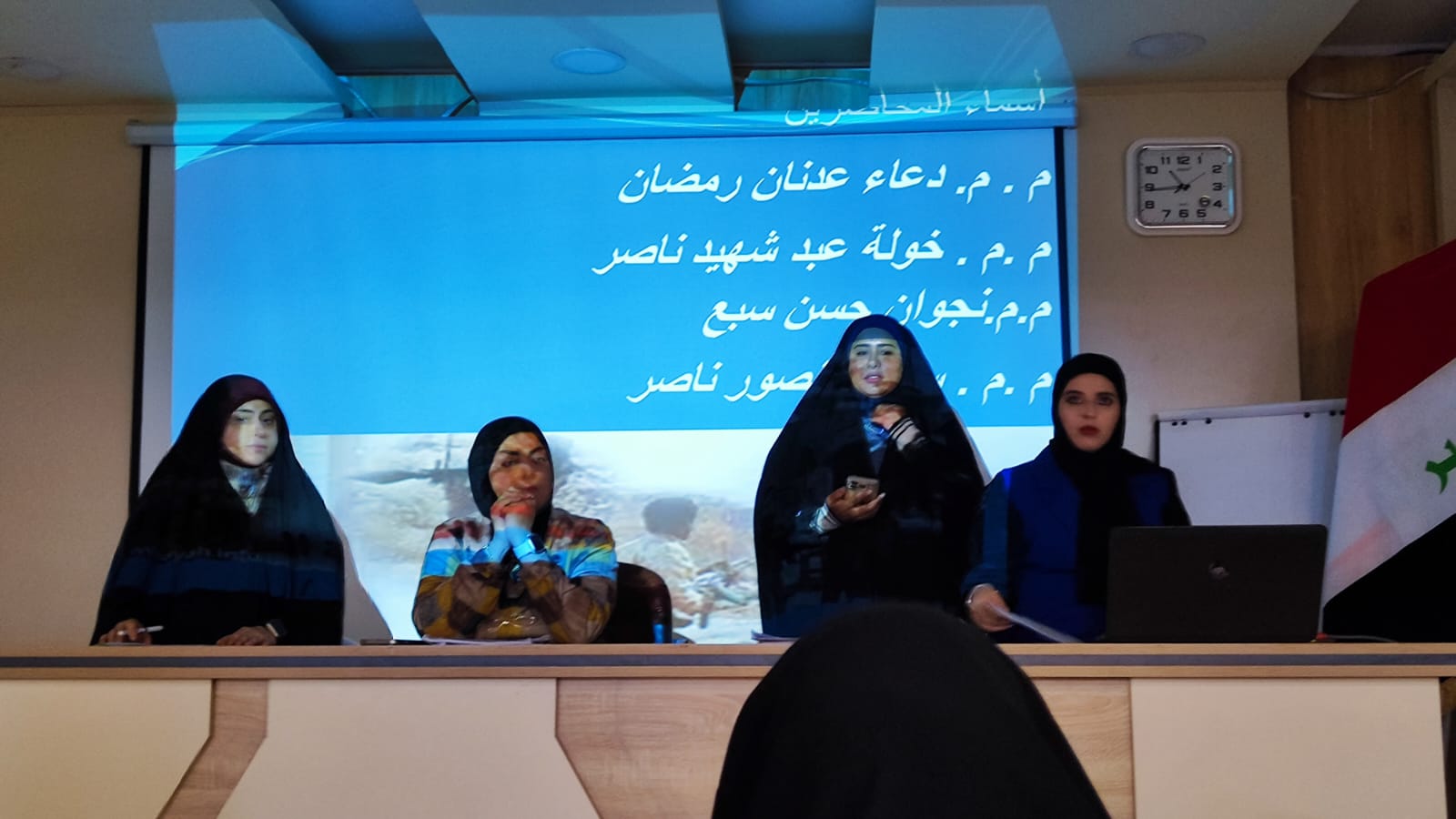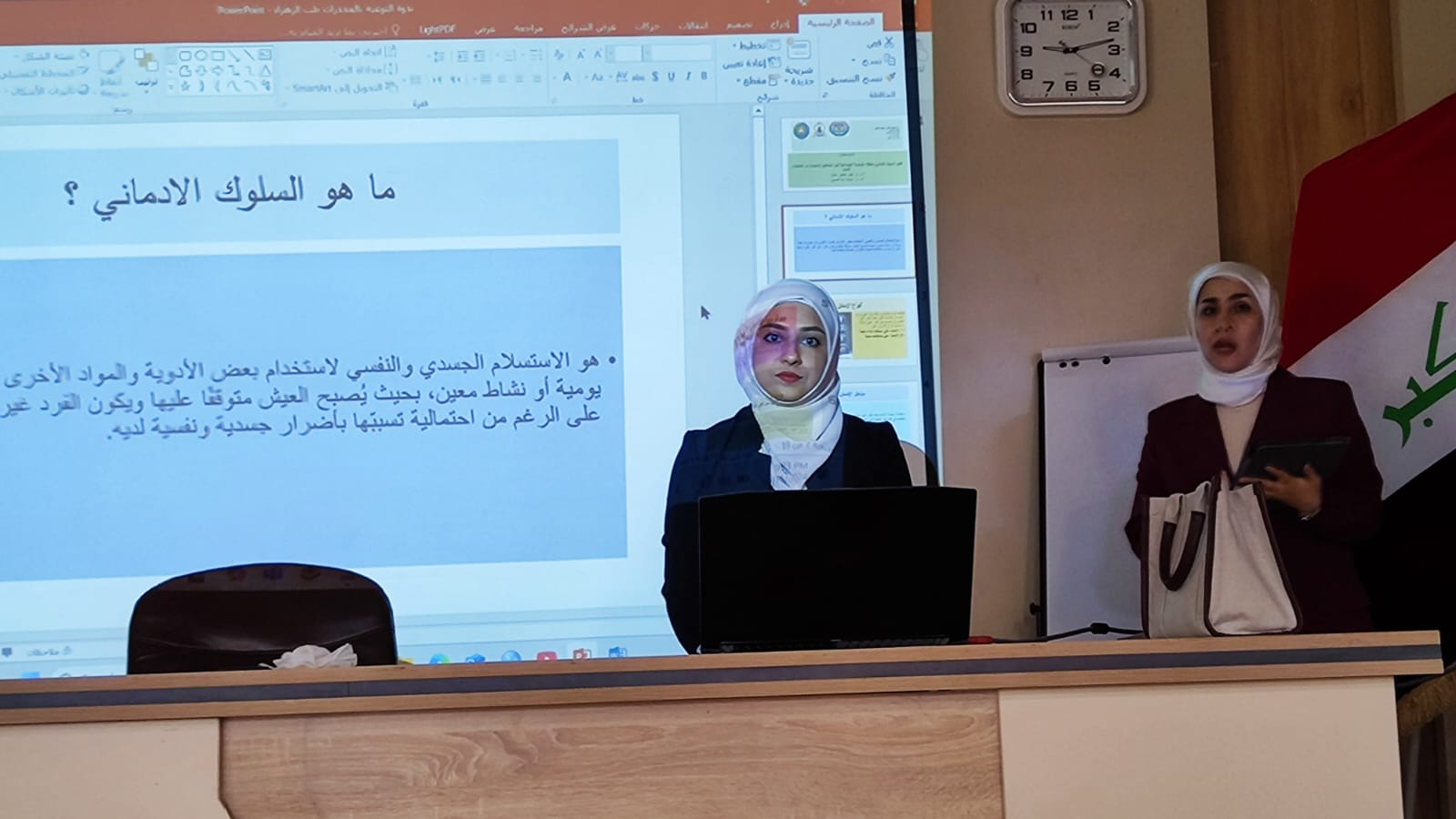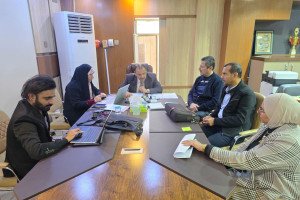
Under the patronage of the President of the University of Basrah, Professor Muhannad Jawad Kazem, and supervised by the Dean of Al-Zahraa College of Medicne, Assistant Professor Dr. Jawad Ramadan Fadhil, Al-Zahraa College of Medicne, in collaboration with the College of Education for Women and the Continuous Education Unit at Al-Zahraa Medical College, organized a scientific symposium titled:
"Behavioral Modification of Addiction and Its Relationship to Social Stigma Among Juvenile and Adolescent Addicts."
Speakers
The symposium featured a series of valuable lectures delivered by distinguished speakers:
- Asst. Lecturer Maysaa Abdul-Hussein Khalaf
- Asst. Lecturer Abeer Khudair Abbas
Event Details
- Venue: Al-Zahraa Medical College, Hall No. 1
- Date: December 12, 2024
- Time: 9:00 AM
Symposium Topics
The symposium focused on several critical topics related to addiction and social stigma, including:
-
Causes of Addiction Among Juveniles and Adolescents:
The reasons driving young people to drug use were explored, alongside scientific approaches for addressing them effectively. -
Social Stigma:
The impact of social stigma on young addicts was discussed, along with how society can adopt positive and supportive approaches to help them recover. -
Behavioral Modification Strategies:
A range of scientific strategies and methods were presented for modifying addictive behaviors and mitigating their negative effects.
Importance of the Symposium
This symposium aligns with Al-Zahraa Medical College’s ongoing efforts to promote mental and physical health awareness within the community. It aims to provide credible scientific information to understand and address addiction issues, while offering psychological and social support to young addicts.
Discussion and Interaction
The event witnessed significant audience engagement, with a dedicated discussion session allowing participants to ask questions and explore the topics in depth. These interactive discussions enriched the symposium, offering a platform to exchange ideas and experiences on addressing addiction and its associated stigma.
Conclusion
The symposium concluded with expressions of gratitude to the speakers for their valuable contributions and to the attendees for their constructive interaction.
This event represents an important step towards raising mental health awareness and providing support to young people facing addiction and social stigma. It is hoped that such initiatives will continue to empower communities to tackle these challenges effectively.





.jpeg)
.webp)
